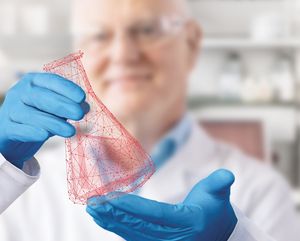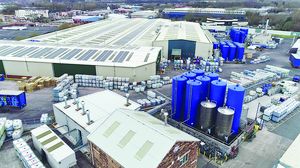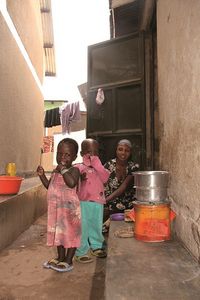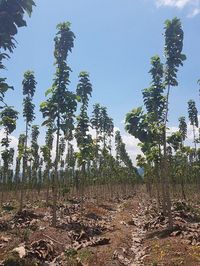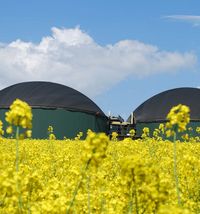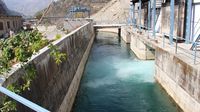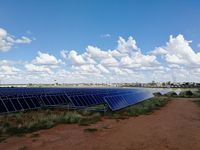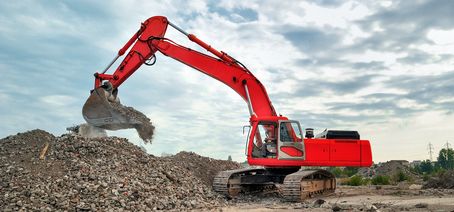Ecology and carbon-neutrality strategy*
We support our suppliers and engage in sustainable purchasing.
Our production: Responsible and CO2-neutral*.
What our customers contribute: Less friction, reduced energy consumption.
We share the results of our research and support our suppliers in developing and using sustainable and carbon-neutral precursors.
We focus on resource conservation and energy savings within our production operations.
We compensate for unavoidable CO2 emissions with selected, certified climate protection projects.
The use of our products makes a strong contribution toward helping the environment. Our environmental performance analyses show: Thanks to factors including friction reduction, the CO2 savings are significantly greater than with conventional products.
Buying sustainably
We know that conducting carbon-neutral* operations within our own company alone is not enough. Our goal therefore is to sell carbon-neutral* products long-term – and we get our suppliers on board to do this by purchasing raw materials. After all, these are responsible for 90 percent of the carbon footprint of a finished lubricant product. Within the scope of numerous research projects, we already support some of our suppliers in the search for corresponding options. And we've brought them all to the table: suppliers, competitors, and customers, in our European industry association UEIL. The objective here is to achieve measurable key performance indicators and criteria for sustainability.
Focus on biogenic raw materials
The use of biogenic raw materials from Europe as renewable, environmentally friendly alternatives to fossil raw materials is at the center of many of the research initiatives in which FUCHS is involved. Their main benefit is that they do not increase the carbon balance and their use often means a new source of income for domestic agriculture.
Actice player for sustainability
The FUCHS carbon-neutrality* strategy is embedded in our sustainability strategy, which began in 2010 when we signed the "Code of Responsible Conduct for Business". In 2018 we joined the "Alliance for Development and Climate" led by the Federal Ministry for Economic Cooperation and Development. At the same time, we initiated the foundation of a sustainability workgroup under the umbrella of the Union of the European Lubricants Industry (UEIL). Together, we develop harmonized sustainability standards, KPIs, and benchmarks to enable sustainability-based comparisons.
Sustainability-News & Awards
Producing sustainably
Naturally, the first thing we look at in terms of sustainability at all of our sites worldwide is our own production, as this is where we can make direct changes. In this way, we have succeeded in lowering CO2 emissions per produced ton of lubricant by 30 percent since 2010. And through continuously optimizing procedures and processes, we will further reduce energy and water consumption and further increase the share of renewable energies, which currently stands at 27 percent. In this way, we will be able to gradually roll back carbon-compensation measures through the support of climate protection projects in the medium term.
Best practice in Great Britain
The British FUCHS subsidiary is setting a good example. Around 2,000 solar collectors on the roof of the new office at the company headquarters in Hanley, Stoke-on-Trent, produce around 14 percent of the energy required for the entire site. 95 percent of the lighting is supplied by LED lights – and in the new, fully automated warehouse with 4,000 pallet spaces that is currently under construction, there are plans for a rainwater collection system.
Production site heats test bay
A perfect example of ecological responsibility at the Mannheim site: High-temperature condensate from the neighboring production site is used for the newly built test bay building and to keep an adjacent warehouse frost free. The high-temperature condensate supplies both the ventilation systems as well as the heaters and ceilings of the test bay building via heat exchangers. The environmentally friendly result: 18 tons of carbon dioxide are saved each year.
Support for climate protection projects
Not all emissions can currently be completely avoided – we compensate these remaining emissions through our involvement in selected climate protection projects in regions where we have our own sites. Our focus here is on expanding renewable energies. The projects must hold internationally recognized certification such as the Gold Standard. Its criteria are developed by organizations like the WWF.
Cookstoves for Peru and Uganda
In contrast to rural parts of Peru and also Uganda, we rarely use open fires when preparing food. There are many negative effects associated with cooking on open fires. Toxic vapors make it harder to breathe in the living spaces, while the need for large quantities of firewood leads to felling of forests and also high costs for households. The "Qori Q’oncha" initiative is making a real difference here in Peru. Almost 80,000 innovative cookstoves have been distributed by the initiative in the South American country since 2008. This allows a reduction of 75,526 tons of CO2 per year. The similar "Efficient Cookstoves in Uganda" project has already equipped more than 500,000 households with efficient stoves since 2006, contributing to a reduction in emissions of around 450,000 tons of CO2 in the African country.
Reforestation in Mexico
The land in the Mexican states of Tabasco, Chiapas, and Campeche is used primarily for livestock breeding and agriculture. The project "Reforestation with Teak – CO2e TEAKIMEX" has been sending out a strong climate protection message since 2013 by planting teak trees. Approximately 4,000 hectares are being replanted in order to improve the biodiversity in these regions. This forest area will store approximately 37,000 tons of greenhouse gas emissions over a period of 36 years. The focus is also on creating sustainable workplaces.
Heat from biogas in China
Farmers from Hezhang county in the mountainous Guizhou province in the southwest of China have an average of 4.5 pigs each. The "Hezhang Rural Methane Digesters Project" focuses on the animals kept by these minorities, as it supports the farmers in constructing methane digesters with a capacity of 8 cubic meters. These can be used to generate biogas from the dung of the pigs and also other waste. Some 50,099 tons of emissions are saved every year in a two-pronged approach. Firstly, no fossil fuels are now required for heating and cooking thanks to the generation of heat. Secondly, the CH4 emissions are reduced thanks to energy recovery from the waste.
Run-of-the-river hydroelectric power plant in India
The Chamoli district in the north of India is characterized by a weak infrastructure and cold winters. There is no permanent electricity supply – although this is now set to change with construction of a run-of-the-river hydroelectric power plant that will supply around 40 GWh of clean energy into the regional power grid. The Hydro Electric project will also save some 37,278 tons of greenhouse gas emissions, as the population will no longer need classic wood-based heating once the environmentally friendly electricity supply is up and running. This will also help counteract forest degradation, soil erosion, and reduced soil fertility.
Solar power plants for Namibia
Namibia relies on its neighboring country of South Africa for around 60 percent of its electricity requirements, for which it predominantly imports fuels from the coal mines located there. In Namibia itself, electricity is generated primarily by hydroelectric power plants, although these are subject to many operational interruptions and downtimes. Supply reliability can now be sustainably improved thanks to construction and operation of two new solar energy plants near the city of Gobabis in the east of Namibia. These new plants are set to supply 28 GWh of clean solar energy per year – and also reduce CO2 emissions in southwest Africa by 27,000 tons per year.
Using sustainably
A joint study by FUCHS and the chemical firm BASF has clearly demonstrated that it is the usage phase that is key for eco-efficiency throughout the entire lifecycle of our products. Here, FUCHS lubricants help to restrict energy consumption and thereby improve the carbon footprint of our customers – by reducing friction, wear, and corrosion. In numerous research projects, we are working on further improving the energy and resource efficiency of drives with the help of our lubricants.
Partners in sustainability
FUCHS and BASF began an intensive dialog on the topic of sustainability back in 2015. The latest result to come out of this close cooperation: an eco-efficiency analysis over the entire lifecycle of three different FUCHS hydraulic oils. The conclusion: The application phase is key for the environmental performance of the hydraulic oils tested.

"FUCHS and BASF - two partners which really fit together. When it comes to sustainability, we are united by the philosophy of a consistent approach to the entire value chain, with the aim of establishing common industry standards."
Dr. Nicola Paczkowski, Corporate Sustainability at BASF
"The result of our joint eco-efficiency analysis shows the high ecological importance of high-performance lubricants. A holistic life cycle approach was enabled thanks to BASF´ high quality primary data, FUCHS' practical application data, and more than 20 years of BASF´ expertise in applied sustainability. The study shows that sustainable solutions go together with business opportunities and that companies, customers, and end consumers can profit from investing in sustainable products."
Dr. Ivana Krkljuš, Senior Manager Sustainability,
Fuel and Lubricant Solutions, at BASF
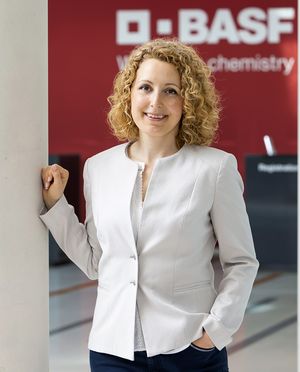
Research for the customer
Aqueous fluids that lead to significantly lower friction in various applications. Lubricants that withstand the particularly hard-working areas of the valve train in gas engines. The development of an e-engine oil for electric vehicles that not only lubricates the transmission, but also cools the e-machine and power electronics. FUCHS brings its expertise to a wide range of research initiatives with one goal in particular: to make the production of its customers more efficient and sustainable.
Lubricants from CO2-neutral* production
As of January 2020, FUCHS is a CO2-neutral* company globally and its customers receive lubricants from CO2-neutral* production worldwide.
FUCHS’ CO2-neutrality* strategy is embedded in its sustainability strategy, which was launched in 2010. In order to implement CO2-neutrality*, FUCHS offsets its CO2 emissions, which have not yet been avoided so far, through carbon-compensation payments by investing in high-quality climate protection projects aimed primarily at promoting renewable energies.
In the medium term, FUCHS intends to gradually reduce its carbon compensation payments and increase its share of renewable energy supplies, while continuing to invest in improving the energy efficiency of its locations.
In the long term, the company also aims to sell CO2-neutral* products to its customers, which requires that FUCHS will in the future be supplied with CO2-neutral* raw materials by its suppliers.
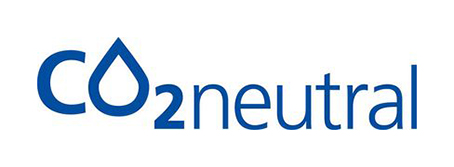
FUCHS globally CO2-neutral since January 2020
Climate change is one of the greatest challenges of our time and it affects the whole human race, even though we in Central Europe are lucky enough to feel the effects only to a comparatively small extent. In other regions of the world, the consequences of global warming such as rising sea levels and the drying-up of lakes and rivers are existential threats for the people living there. The rich industrialized nations emit a comparatively large amount of CO2, especially through intensive industrial production. So for FUCHS, our commitment to global climate protection means assuming global responsibility with regard to economic, ecological and social aspects. In October 2019, therefore, FUCHS joined the “Alliance for Development and Climate” of the German Federal Ministry for Economic Cooperation and Development (BMZ) as an official supporter. The members of this alliance, which combines climate protection and sustainable development, strive for CO2-neutrality by avoiding, reducing and offsetting CO2 emissions at the same time.
Climate-damaging CO2 emissions result from numerous processes directly or indirectly related to the combustion of fossil fuels. Since CO2 emissions impact on the climate at a global level, it is ultimately irrelevant where on the planet they originate and where they are saved. So the offsetting of emissions proportionate to the amount produced – for example, through investments in international climate protection projects – ultimately ensures that the carbon footprint remains neutral. With carbon offsetting, therefore, the added value for the environment is generated through the voluntary promotion of climate protection projects, which would not be possible without such additional income. This voluntary financial support not only helps the selected countries to improve their economic, social and ecological circumstances, but is also a major driver for the transfer of clean technologies and sustainable global economic development.
Although the direct CO2 footprint in the manufacture of lubricants is comparatively low – a factor that sets FUCHS apart from the rest of the chemical industry – it was and remains our aim to reduce it continuously and systematically. For example, energy-consumption-specific CO2 emissions per ton of FUCHS lubricant produced have already been reduced by a total of around 30% since 2010. Global CO2-neutrality is another milestone in our FUCHS sustainability strategy, which we launched ten years ago. Sustainability is one FUCHS’ core corporate values. The success of global emission reductions depends to a great extent on the voluntary and systematic actions of the business sector in industrialized countries. This is why we decided to take our share of responsibility and offset our CO2footprint. In this way, we are taking responsibility for global climate protection and making an important contribution to achieving the goals of the UN climate protection agreement ratified in Paris in 2015. This agreement aims to limit global warming to well below two degrees Celsius compared with pre-industrial levels. We want to actively protect our environment and help our customers to do their bit, too. Since January 1, 2020, our customers across the world receive lubricants from FUCHS as a CO2-neutral lubricant company, produced in CO2-neutral processes.
As of January 2020, FUCHS is completely CO2-neutral globally.This means that we no longer leave a CO2 footprint and thus no longer have a negative impact on CO2 concentrations in the atmosphere. As an industrial company, FUCHS continues to emit CO2. This is unavoidable in many places. But by 2020, we have neutralized all our CO₂ emissions from our 58 FUCHS locations worldwide – from energy consumption in production to consumables in administration. To achieve CO2-neutrality as early as 2020, FUCHS offsets its previously unavoidable CO2 emissions with compensation measures. This is be done by investing in high-quality climate protection projects aimed primarily at promoting renewable energies.
The step towards global FUCHS CO2 neutrality since January 1, 2020 was prepared for one year and accompanied by the sustainability consultancy Fokus Zukunft. Fokus Zukunft reviewed the calculation of FUCHS’ CO2 emissions in September 2019 and confirmed the accuracy of the data basis and the application of the Greenhouse Gas Protocol guidelines as the calculation standard for determining CO2 emissions. Fokus Zukunft then certified the FUCHS Group as a CO2-neutral company, which means that FUCHS is entitled to declare itself CO2-neutral since January 1, 2020.
Neutrality refers to the global CO2footprint generated by FUCHS at all its worldwide locations through heat, fuel and electricity consumption in production, administration and research processes, through upstream energy-related emissions, business trips, hotel overnight stays and employee commutes as well as through waste generation and waste water in the company. This enables us to precisely calculate the CO2 emissions generated. Based on this calculation, FUCHS then makes compensatory investments in climate protection projects to offset the corresponding amount of CO2.
Our projects are accredited, approved and monitored according to internationally recognized certification standards such as the Gold Standard as well as by renowned organizations such as the United Nations (UN). The projects certified according to the Gold Standard fulfill especially stringent requirements. They not only save CO2, but also contribute to local sustainable development. The validation of the project results with regard to the CO2 savings achieved is verified by independent testing bodies such as TÜV.
When selecting projects, we focus on high-quality voluntary climate protection projects that support economic, ecological and social development worldwide in countries and regions of the “Global South” with FUCHS locations and where these projects are aimed primarily at promoting renewable energies. According to the current list of the German Federal Ministry for Economic Cooperation and Development (BMZ), the “Global South” refers to socially, politically and/or economically disadvantaged countries. In this way, FUCHS fulfills its global social responsibility in the sense of corporate citizenship. At the same time, we are also supporting most of the 17 sustainable development goals of the UN, to which we have officially committed ourselves since 2018. When selecting projects, we also ensure that we support at least one high-quality project every year within each of the six project sectors (biomass, ovens, solar energy, forest conservation, hydropower, wind energy).
CO2 offsetting means that greenhouse gases that are produced in one region of the earth and cannot be avoided are compensated by climate protection projects in another region. To finance these, companies buy certificates for a range of different projects. Each certificate represents 1 ton of CO2 saved by the project. Numerous climate protection projects – most of them in the field of renewable energy – have been launched worldwide. In return for their participation, the project initiators receive emission credits, which can be traded in the form of climate protection certificates. The amount is calculated, for example, on the basis of a comparison with the emissions that would have resulted from the construction of a coal-fired power plant.
Yes, because they are tested and certified by independent institutions – a minimum requirement for FUCHS. These institutions – including various TÜV companies – issue the certificates according to internationally applicable standards. A key aspect of emissions trading is the retirement of certificates after they have been acquired. Retirement must be clearly documented. Each CO2 offset ends with the documented retirement of the certificates. This ensures that the same certificates are not traded more than once, which, in turn, would invalidate the principle of balance. FUCHS acquired its climate protection project certificates via Fokus Zukunft and the organisation First Climate.
Voluntary CO2offsetting works according to the principle that greenhouse gas emitters invest in and support voluntary climate protection projects by purchasing emission reduction certificates. Prices depend on the individual project; in other words, when an emission reduction certificate is purchased, a third party is commissioned to save one ton of CO2 in the atmosphere in another region of the earth on the company’s behalf. Pricing on the CO2 market is also determined by supply and demand. Projects that, above and beyond simple climate protection, offer additional benefits for the people and the environment in the region where the project is being undertaken frequently achieve higher prices on the market.
With CO2 offsetting, the added value for the environment is generated through the voluntary promotion of climate protection projects, which would not be possible without the additional income. Only climate protection projects that can prove their added value within the framework of certification are recognized and so gain access to the market. Trading in CO2 reduction certificates follows a principle known as “results-based finance.” This refers to the idea that the developers of climate protection projects can issue emission reduction certificates only if their project has already been implemented and demonstrably helps to reduce CO2 emissions. So anyone who acquires CO2 reduction certificates in order to compensate for their own emissions can be confident that purchasing certificates will be matched by a real benefit for climate protection. This mechanism, which is embedded in the Kyoto Protocol, has become firmly established over the past 20 years and proven itself as a central component of voluntary, non-governmental climate protection. The process is supported by the UN, numerous non-governmental organizations and hundreds of large companies, including those in the petroleum industry. FUCHS invests exclusively in projects that meet the above criteria and was able to choose its project partner and climate project with the support of Fokus Zukunft respectively First Climate. But it is also clear that this form of CO2 offsetting will merely support and not replace our ongoing efforts to globally reduce our (avoidable) CO2 emissions.
FUCHS continues to follow the principle of avoid–reduce–offset. Around 80% of FUCHS’ CO2 emissions are caused by heat and electricity consumption, so energy efficiency is an important lever in avoiding or reducing CO2. In the medium term, FUCHS intends to gradually reduce its CO2 compensation payments and increase its share of renewable energy supplies while continuing to invest in improving the energy efficiency of its locations.
In the long term, the company aims to sell CO2-neutral products to its customers. However, this also requires that FUCHS will in the future receive CO2-neutral raw materials from its suppliers – after all, these account for around 90% of the carbon footprint of FUCHS lubricants. As the world’s largest independent manufacturer, however, we occupy a central position in the lubricant market and so are well-positioned to exert our influence in the upstream value chain. We expect our suppliers in the future to use more sustainable, innovative preliminary products so that they can supply us with either lower-carbon or CO2-neutral raw materials for lubricant production. Only in this way can FUCHS, as a CO2-neutral lubricant company, offer its customers CO2-neutral lubricants from CO2-neutral production.
Absolutely. Through a number of internal and external measures, FUCHS not only promotes its own CO2-neutrality and, in turn, climate protection as a whole, but it has also been developing, producing and marketing numerous emission-reducing and eco-friendly lubricants for almost 90 years. So during the application phase, these products make a greater contribution to saving energy and CO2 emissions than conventional alternatives thanks to reduced friction and their ability to protect against wear and corrosion. FUCHS has begun to quantify these higher CO2 savings effects by performing lifecycle analyses and assessments so that, in the future, it can categorize its lubricant portfolio by the CO2 footprint of individual product groups. We believe that the CO2 categorization of the product portfolio will become a key component in the production specifications published by lubricant manufacturers and, in addition to performance and price, a key differentiating feature and, in turn, a competitive advantage for FUCHS. One objective of our business activities is to develop solutions aimed at reducing the CO2 footprint of not only our raw materials and lubricant production processes, but also of our customers.

